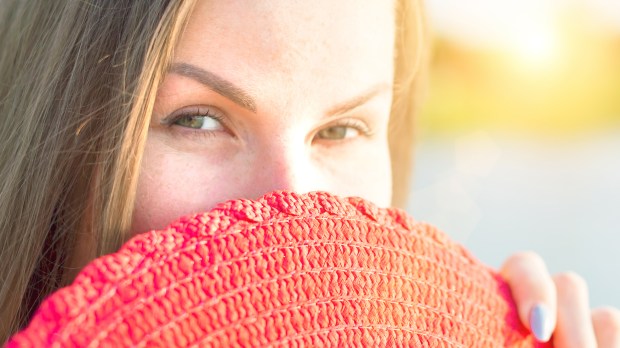Lenten Campaign 2025
This content is free of charge, as are all our articles.
Support us with a donation that is tax-deductible and enable us to continue to reach millions of readers.
Brene Brown is a researcher at the University of Houston and the author of Daring Greatly: How the Courage to Be Vulnerable Transforms the Way We Live, Parent, and Lead.In her book, she writes, “Shame is the intensely painful feeling that we are flawed and therefore unworthy of love and belonging.It is a feeling that the working version of me is too imperfect to show to the world.”
The unpleasant experience of shame is universal. Who isn’t familiar with the cold sweat that covers us when we do something embarrassing? Shame, together with fear, is one of the first emotions described in the Bible. We all know the story of Adam and Eve, who, ashamed, covered their bodies with fig leaves so that God wouldn’t see their nakedness.
Fear of not being accepted
A common source of shame is a lack of acceptance of our own physical appearance. Perhaps we do not feel thin enough, or fit enough, or sufficiently well-proportioned. Sometimes it’s just our imagination, or maybe we don’t take care of our bodies enough, or just have genes that don’t favor us being supremely beautiful or handsome by popular standards.
But shame, in these cases, is almost always misplaced, and due to unrealistic ideals. If we don’t overcome this shame, it can unreasonably affect our social life and our self-esteem. We need to accept our bodies as they are given to us by God, and do what we can to care for them responsibly. There will always be someone who is better looking than we are. (We also need to be sure we, in turn, aren’t shaming others for physical characteristics which are often largely beyond their control.)
But not all shame is related to something as obvious as our external appearance. Often we are ashamed of things we have done or which we have experienced at the hands of others, but which are known to few people, or to us alone. Family problems, violence, abuse, illness, addictions, bad habits, or habitual sins: any of these things — which are usually hidden behind closed doors of our homes, our lips, and our hearts — can be sources of shame. They are moments or aspects of our lives that we try to keep isolated, hidden from the world. They cause us so much discomfort that we’d prefer never to talk about them with anyone.
Shame, therefore, is a social emotion, meaning we always feel it in relation to other people. We are ashamed because someone might judge us and not accept us. We’re afraid they may reject us outright, or that we might lose their respect. This fear is what makes us hide part of who we are from other people.
Brown explains, “We all have personal stories of shame, usually locked away and carefully guarded. Sometimes we disclose them to our confessor, to our psychotherapist, or to our loved ones. Usually, however, we live alone with this weight, with a misguided hope that we can deal with the shame ourselves.”
The best remedy: disclosure
Unfortunately, the more we hide the things we are ashamed of, the more we strengthen them. As Brown says, “Shame feeds on secrets.” What has the power to free us from shame is disclosure: telling a trusted person the story of your life, pouring out your difficult emotions, and sharing your secrets. Even though it is extremely difficult and requires stepping radically out of your comfort zone, it is the only thing that can heal us and help us.
First of all, thanks to getting an objective viewpoint of a third party, we may come to understand that we had nothing to be ashamed of to begin with. Quite possibly, what has been causing us anxiety and making us feel isolated is actually a nearly universal experience; no one is perfect, and most of us fall into similar faults and weaknesses at one point or another.It’s also possible that we are not the ones who should be ashamed, but rather someone else who did us harm; in that case, we need to recognize with whom the true shame lies, learn to recover our self-esteem, and forgive — although we may also need to seek justice for the good of society. Abundant cases have come to light recently of victims of sexual abuse who felt shame and were afraid to speak out, but by doing so, they have found strength, justice, and internal freedom.
Secondly, even if we do in fact have something to be ashamed of, we will discover that there is the possibility of overcoming our past through seeking forgiveness and redemption. In both cases — guilty or not — a combination of sacramental confession and professional psychological counseling can be a great help towards overcoming shame, and may be necessary for us to move on.
There is a place for shame, if we are truly guilty of an offense worthy of that feeling, but even then, we should never let ourselves dwell in shame, letting it imprison us. Shame is natural, and is supposed to move us on to change our lives for the better. We need to accept the truth about who we are — most likely, just ordinary people with weaknesses like everybody else — and learn to love and forgive ourselves, and to take daily steps towards being better people. But, we really can’t do it alone; opening up to people we trust and seeking help is the first step to a freer, happier life.
Read more:
Shame vs. guilt: A guide for the scrupulous
This article was originally published in the Polish edition of Aleteia and has been translated and adapted here for English-speaking readers.

